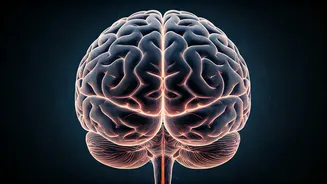Nourish Your Brain
The cornerstone of a healthy mind begins with a balanced diet. It is essential to include nutrient-rich foods that feed your brain. Think of incorporating
foods high in antioxidants, such as berries and leafy greens, which combat oxidative stress. Healthy fats, like those found in avocados and nuts, are crucial for brain cell structure and function. Minimizing processed foods, sugary drinks, and excessive alcohol intake also plays a vital role. By making conscious dietary choices, individuals can create a solid foundation for optimal cognitive performance and maintain the brain's ability to function at its best, ensuring long-term mental sharpness and vitality.
Move Your Body
Regular physical activity is vital for preserving brain health. Engaging in moderate-intensity exercises, such as brisk walking, swimming, or cycling, stimulates blood flow to the brain, providing essential nutrients and oxygen. Exercise also promotes the release of brain-derived neurotrophic factor (BDNF), a protein that supports the growth and survival of brain cells. Aim for at least 30 minutes of moderate exercise most days of the week. Incorporating activities like yoga or Tai Chi, which combine physical movement with mental focus, can be particularly beneficial for enhancing cognitive function and reducing stress. Consistent exercise contributes to improved memory, focus, and overall mental acuity.
Prioritize Sleep
Quality sleep is fundamental to maintaining a sharp mind. During sleep, the brain consolidates memories, clears out toxins, and repairs itself. Aim for 7–9 hours of sleep each night. Establishing a regular sleep schedule, going to bed and waking up at the same time, helps regulate the body's natural sleep-wake cycle. Create a relaxing bedtime routine to prepare your mind and body for sleep, such as taking a warm bath or reading a book. Ensure your sleep environment is conducive to rest, keeping the room dark, quiet, and cool. Adequate sleep supports cognitive functions, including memory, learning, and problem-solving, contributing significantly to mental clarity and overall well-being.
Challenge Your Mind
Keeping your mind active and engaged is crucial for maintaining cognitive health. Engaging in mentally stimulating activities can help create new neural connections and strengthen existing ones. This could involve reading, solving puzzles, learning a new language, or taking up a new hobby. Regularly challenging your brain with activities that require focus and critical thinking keeps your mind sharp. Incorporating these activities into your daily routine helps to improve memory, attention, and overall cognitive function. Continued mental stimulation is key to preserving cognitive abilities and keeping your mind agile and resilient over time.
Manage Stress Levels
Chronic stress can negatively impact brain health and cognitive function. Finding effective strategies to manage stress is vital. Practices like meditation, deep breathing exercises, and mindfulness can help reduce stress and promote relaxation. Engage in activities you enjoy, such as spending time in nature or pursuing hobbies. Maintaining a healthy social life and seeking support from friends and family can provide emotional resilience. Reducing stress levels supports cognitive function, enhancing memory, focus, and mental clarity. By integrating these stress-management techniques, individuals can protect their brain health and promote overall well-being.














